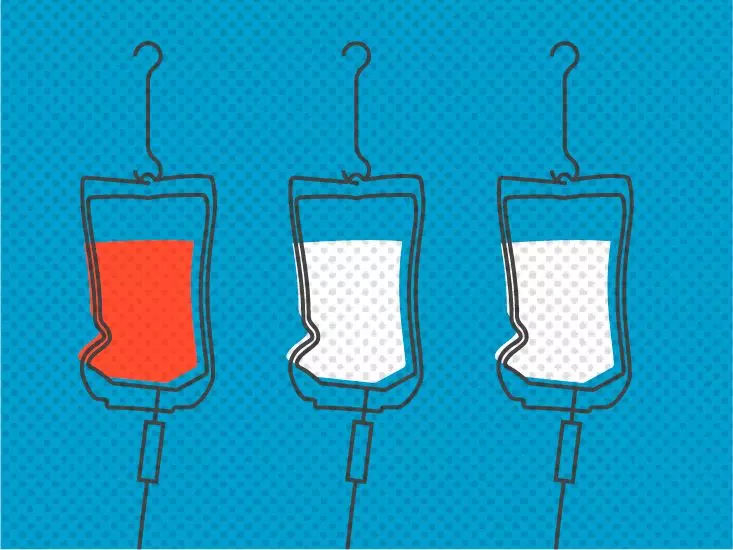Abecma, known scientifically as idecabtagene vicleucel, is a groundbreaking infusion therapy designed for adults facing refractory or relapsed multiple myeloma. In the ever-evolving landscape of cancer treatments, Abecma has emerged as a beacon of hope for those whose previous treatments failed to yield favorable results. However, with any advanced therapy comes a myriad of considerations regarding interactions with other substances, medications, and even daily habits. Understanding these interactions is paramount for anyone undergoing treatment with Abecma.
The Unique Mechanism of Abecma in Multiple Myeloma Treatment
To appreciate the significance of Abecma, it’s imperative to first grasp its mechanism. This therapy is a form of CAR T-cell therapy, which means it harnesses a patient’s immune system to fight cancer. Specifically, Abecma customizes the T-cells—crucial components of the immune response— to identify and attack multiple myeloma cells. This approach arms patients with a robust defense against a stubborn form of cancer characterized by uncontrolled proliferation of plasma cells.
When considering treatment with Abecma, the route taken is typically after a patient has undergone several other therapeutic modalities without achieving remission. This context establishes Abecma not merely as a subsequent line of defense but as a vital alternative for resilient conditions that persist despite conventional care methods.
Interactions and Risks: A Detailed Overview
The landscape of interactions surrounding Abecma is intricate yet critical for optimizing patient safety. While the manufacturer indicates no outright medication interactions noted in clinical trials, the nuanced relationship between Abecma and other substances may occur, particularly with vaccinations, lab tests, and lifestyle habits.
Understanding interactions extends beyond mere medication compatibility. For instance, patients should be aware that Abecma can interfere with certain lab tests, notably those screening for HIV, potentially resulting in misleading positive results. This highlights a need for thorough communication with healthcare providers regarding upcoming tests, emphasizing that Abecma’s therapeutic benefits should not unwittingly complicate essential health evaluations.
Alcohol and Abecma: A Cautionary Tale
Interestingly, while no confirmed interactions exist between Abecma and alcohol, the drug’s side effects can be amplified when alcohol is consumed. Side effects such as dizziness, nausea, and headaches may exacerbate the burden on patients already navigating the challenging effects of their treatment. The combined effects of alcohol and Abecma can obscure the treatment’s efficacy and the patient’s demonstrable response, leading healthcare professionals to recommend moderation or abstinence from alcohol during the therapeutic course. This is a crucial consideration for anyone aiming to maximize treatment outcomes.
Vitamins, Supplements, and Other Everyday Interactions
The realm of vitamins and supplements introduces another layer of caution. Although there are no documented interactions with common vitamins or herbal remedies, this does not guarantee safety. Health trends today often gravitate towards natural supplements, which could inadvertently complicate Abecma treatments. Patients are strongly encouraged to speak with their healthcare providers before introducing new supplements. This proactive communication can mitigate potential issues that could arise from undisclosed herbal interactions, ensuring a comprehensive therapeutic plan.
Moreover, given that Abecma modulates the immune response, care must be exercised regarding the use of live vaccines during treatment. The weakened immune state induced by Abecma compromises the body’s ability to fend off infections, which can lead to serious health ramifications if exposed to pathogens that these vaccines aim to protect against. Thus, patients should engage in candid discussions about their vaccination history and future needs with their healthcare practitioners.
The Role of Cannabis and CBD in Abecma Treatment
As the conversation around cannabis and its derivative products evolves, the intersection with Abecma remains an area requiring careful scrutiny. While existing reports do not indicate direct interactions, the pharmacological impact of cannabis on treatment compliance or symptom management cannot be ignored. Individual responses to cannabis vary broadly, and integrating it into a treatment plan requires openness and transparency with healthcare providers to tailor a supportive regimen.
The legal status of cannabis is another layer, posing challenges for patients in various jurisdictions who may not fully understand the implications of its use alongside conventional treatments. As such, discussions surrounding its use should be grounded in medical guidance rather than anecdotal evidence.
Navigating the complexities of undergoing treatment with Abecma is an intricate journey marked by innovative healing potentials tempered by cautionary measures. Emphasizing thorough communication with healthcare providers is not merely advisable but essential for patients to derive the maximum benefit from this revolutionary therapy.


Leave a Reply